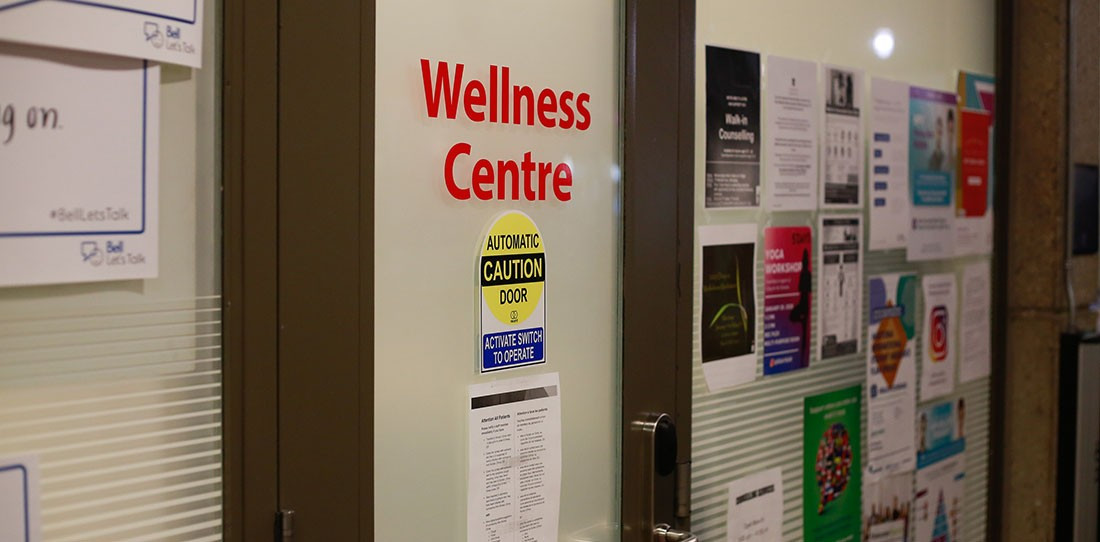Flu season welcomes strange guest
As the world watches the coronavirus outbreak, Manitoba remains at low risk
After an outbreak of a new coronavirus strain (2019-nCoV) was detected in Wuhan, China on Dec. 31 2019, the World Health Organization (WHO) declared it a Public Health Emergency of International Concern, which is “an extraordinary event which is determined to constitute a public health risk to other States through the international spread of disease and to potentially require a coordinated international response" on Jan. 30, 2020.
While Manitoba Health officials say the chance of catching the virus is low in the province, there have already been four confirmed cases in Canada as of Jan. 31. The Canadian government currently advises people to follow typical sanitary measures like proper handwashing and directs anyone who has recently visited the Hubei province of China to take extra precautions.
The University of Winnipeg (U of W) has not yet made any public statements regarding the health concern, with Kevin Rosen, executive director of marketing and communications for the university, reiterating that it is currently of low concern in Manitoba. However, he says that “it is still prudent for individuals to be prepared and informed.”
“Faculty, staff and students should take precautions that can help avoid contracting and spreading respiratory illness. The university is in contact with public health officials and, as the situation develops, will relay any important health messages,” he says.
Meanwhile, the University of Manitoba (U of M) has released a public statement after receiving questions from their student body.
“We are actively monitoring the situation in conjunction with Manitoba Health and the Public Health Agency of Canada and will provide additional information when available,” the statement reads.
It further advises anyone planning on missing class due to fears of catching the virus to directly communicate with their instructors and encourages students to acquire medical certificates or other appropriate documentation in the case they fall ill or have to quarantine themselves.
The U of W currently hosts a Chinese Student Association, and a large part of their membership is composed of international students from China attending the university on visas. Although the group hasn’t released any statements on the matter regarding travel precautions, Winnipeg’s Chinese community has been extra cautious since the outbreak and has cancelled annual Lunar New Year celebrations.
Further, despite health concerns remaining low in the province, racism and xenophobia toward Winnipeg’s Asian community are present. There has already been a case of a CBC article being distorted to create a conspiracy theory online.
The original CBC article concerned two Chinese scientists being escorted out of the National Microbiology Lab in Winnipeg last year due to administrative matters. This event was misrepresented by some online as the cause of the coronavirus emergency. The theory has been deemed baseless, despite having attracted significant media attention in both China and Canada.
The low-risk status is not enough to calm some people’s nerves, as face masks are going out of stock across Winnipeg, despite health professionals stating it’s not known if face masks help prevent the spread of the virus.
Although the exact treatment of the virus is not clear, and a vaccine doesn’t yet exist, health officials are confident that preventative measures can be taken that are similar to those for other respiratory viruses, such as hand sanitation and covering coughs and sneezes.
Stefon Irvine, a first-year medical student at the U of M, says that while they have not yet covered the pathology of this new strand of the coronavirus, “its etiology is similar to other airborne viruses spread via cough and sneeze droplets.”
“With this, medical students are trained on how to respond to airborne epidemics through standard personal protective gear, hand hygiene and other procedures and policies to ensure our healthcare system is prepared for any possible outbreaks or epidemics,” they say.
“A lot was learned across the country during the SARS outbreak and allowed hospitals and healthcare providers to ensure policies and protective measures reflect current research in infectious disease and virology.”
The Government of Canada has currently put out a Level 3 travel notice, advising people to avoid all non-essential travel between Canada and China. The previous SARS outbreak that Irvine refers to entered Canada in 2003 and resulted in 438 suspected cases and 44 deaths. In a final report released after an investigation of the introduction of SARS in Ontario, Justice Archie Campbell wrote of the horrors of the virus and how unprepared the Canadian Health system was to deal with it.
“Our public health and emergency infrastructures were in a sorry state of decay, starved for resources by governments of all three political parties,” he notes.
With many infected on the job during the SARS outbreak, it is uncertain whether Manitoba would be able to handle the novel coronavirus if it were to breach its borders. During a news conference on Jan. 23, Manitoba's chief public health officer, Dr. Brent Roussin said "We are already planning for this; we are prepared for a suspected case and have contingencies in place to deal with it."
“Manitoba medical students are unique in the fact we are already registered with the College of Physicians and Surgeons as associated members. As members, the Manitoba Government sends students (and all physicians) information and graphics related to public health concerns or trends and treatments for emerging diseases. The government actively sends all members of the CPSM recommendations to keep Manitobans safe,” Irvine says.
“This allows students to stay current and on top of public health trends and allows us to identify gaps in our training related to these illnesses to ensure we seek out additional education. As medical literature and research is ever-evolving, it is a requirement students stay current as lifelong learners to ensure we are providing the best care to our patients.”
Published in Volume 74, Number 17 of The Uniter (February 6, 2020)







